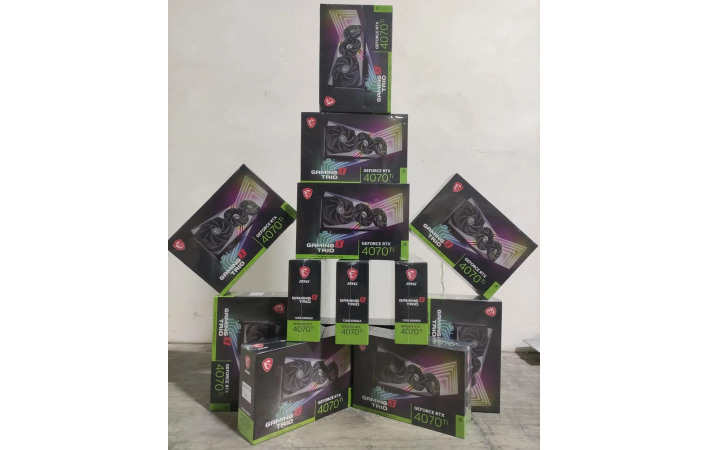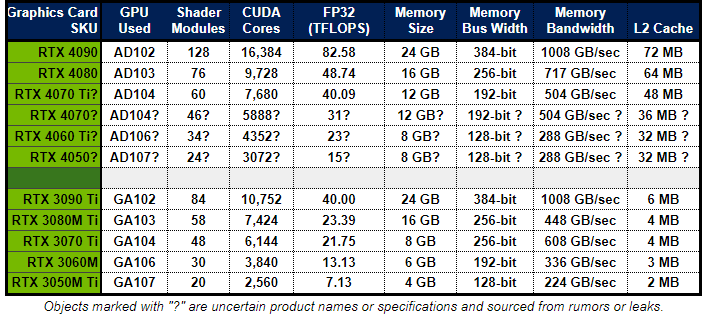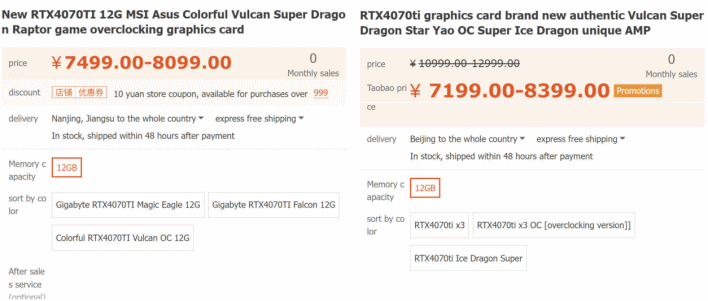NVIDIA's decision to cancel (or "
unlaunch") the GeForce RTX 4080 12GB card was apparently because it wasn't "named right." That's fair enough, given the wide gulf in specifications between the
extant RTX 4080 and the canceled card. However, the card's $899 price was also a point of contention, and many people have been waiting impatiently to see the final price of the re-launched model. News from China seems to indicate that the price will be about the same as it was before.
For context, when
NVIDIA announced the two RTX 4080 cards, it priced the GeForce RTX 4080 16GB model—now known simply as "RTX 4080"—at $1199, while the "RTX 4080 12GB" was marked down for an $899 launch price. The 12GB model was then "unlaunched", and it is all-but-guaranteed to resurface as the GeForce RTX 4070 Ti. We know that not only from earlier leaks but also from browsing Chinese e-tailers, where the cards are already up for sale.
Taobao screenshots showing RTX 4070 Ti listings. Source: Videocardz
Indeed, despite that NVIDIA hasn't even officially announced the SKU yet, sites like Taobao and JD are already selling GeForce RTX 4070 Ti cards from a variety of manufacturers. Videocardz scoured the shops and found models from MSI, Gigabyte, Inno3D, and Colorful listed for prices ranging from 7199 RMB ($1034 USD) for a basic Inno3D or MSI model, all the way up to 8399 RMB ($1206 USD) for Inno3D's top-end RTX 4070 Ti iChill card.
The lowest price there (7199 RMB) was in fact the announced MSRP for the "RTX 4080 12GB" in China. So saying, it seems like NVIDIA may well intend to launch the GeForce RTX 4070 Ti at the original $899 price. If that's the case, the company may find a hard sell against AMD's competition. The
Radeon RX 7900 XTX goes for just $100 more, has twice the video RAM, and competes well against the next-tier-up GeForce RTX 4080. Of course, NVIDIA's product will likely have superior ray-tracing support, as well as DLSS 3.
To remind you of the assumed GeForce RTX 4070 Ti's specifications, it uses the AD104 processor, smaller than the AD103 in the RTX 4080 and the AD102 in the RTX 3090. It has a bit under 80% of the shader resources of the RTX 4080, but is expected to clock slightly higher. However, it also has a narrower 192-bit memory bus and is using slower 21-Gbps GDDR6X memory, giving it a slower memory interface than the last-gen
RTX 3070 Ti.
To be clear, these
early price leaks are frequently not representative of final pricing. Besides, 504 GB/sec is still a phenomenally fast memory bus, and we are sure the card will be performant. The only real question is whether fans will find that the performance justifies the high price tag. We'll be able to make our own judgement once we
have cards in hand, so look forward to our review.





